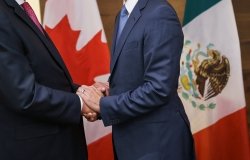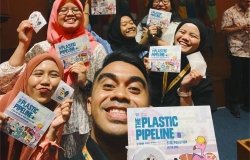Latest IAEA Report Is Blunt in its Assessment of Iran
Greeted as a breakthrough in frank language, the latest report on Iran by the IAEA, the UN nuclear watchdog, for once points out Iran's refusal to answer key questions about its nuclear enrichment. Wilson Center Public Policy Scholar Michael Adler comments on the report.
The latest report on Iran by the UN nuclear watchdog has been greeted as a breakthrough in frank language, for once unambiguously pointing out Iran's refusal to answer key questions. The New York Times called the International Atomic Energy Agency's report released Monday "unusually blunt and detailed." This comes after years during which the United States, Britain, and France have all complained that IAEA chief Mohammed ElBaradei was too soft on Iran.
The bottom line, however, is that despite the politics swirling around the atomic agency, with the West urging a hard line against Iran for allegedly seeking nuclear weapons and Nobel Peace Prize laureate ElBaradei insisting on not drawing hasty conclusions, IAEA reports have mostly been straightforward. They have given the West plenty of ammunition with which to come down on Iran.
This report then is no exception and will set the stage for the meeting beginning in Vienna next week of the IAEA's 35-nation board of governors. The report says that Iran, despite having cleared up a host of outstanding issues about its nuclear program, is stonewalling on perhaps the most crucial question of all – whether it tried in the past to develop nuclear weapons. Iran claims its nuclear program is a wholly civilian effort designed to produce electricity. But the report outlines a number of concerns under the boldface title, "Possible Military Dimensions."
It says: "The alleged studies on the green salt project [scholar's note: making uranium metal that could be used in atomic weapons], high explosives testing [which could be implosion techniques needed to set off a nuclear bomb] and the missile re-entry project [which could be trying to put a nuclear warhead on a missile] remain a matter of serious concern." The IAEA says, "Iran has agreed to address the alleged studies" but has so far only responded by saying "that all the allegations are baseless and that the data have been fabricated." The agency adds: "It is essential that Iran provide all requested information, clarifications and access [note: including interviews of key people] outlined in this report without further delay."
In addition, the IAEA documents Iran's continued refusal to suspend uranium enrichment, which makes power reactor fuel but also can produce atom bomb material, in violation of three resolutions from the UN Security Council calling for enrichment to stop.










